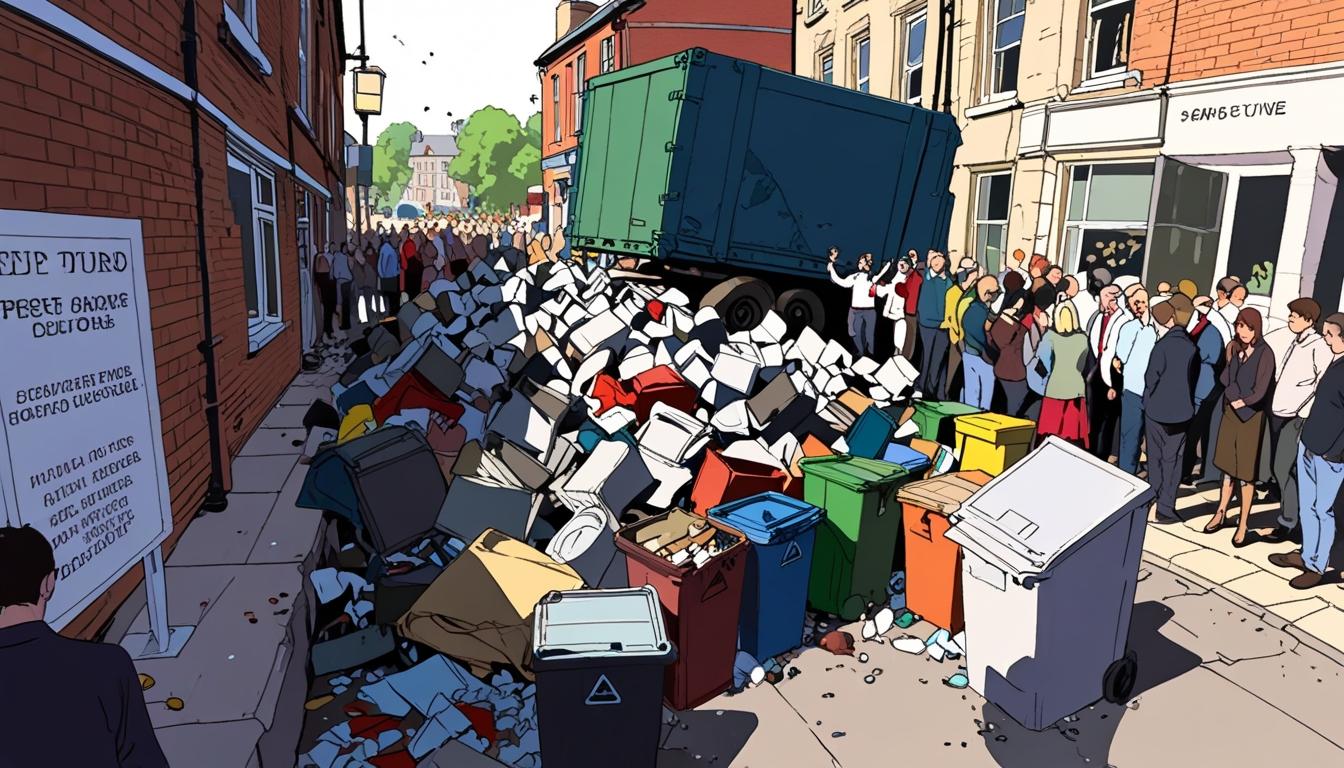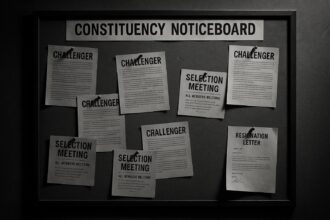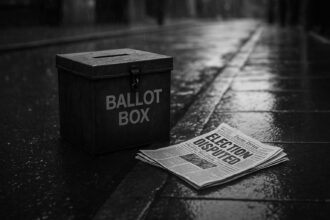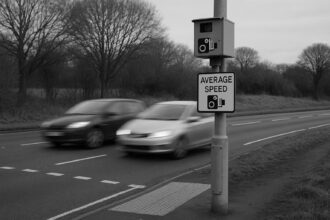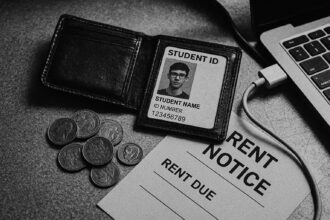As Derbyshire’s County Council elections approach, the opposition leader has condemned the current administrations for mismanagement, raising concerns over local services and fiscal responsibility.
In a recent communication aimed at the residents of Derbyshire, the opposition party leader has sharply criticized local authorities, condemning the political administrations—whether Conservative, Labour, or Liberal Democrats—for what he sees as gross mismanagement. This rhetoric comes ahead of the Derbyshire County Council elections on May 2nd, as residents begin to realize the failures of those in power.
The leader’s blunt assertion that local councils are “fundamentally and institutionally broken” resonates with many voters disenchanted by ongoing service failures. Key public services, including education, waste management, and social care, are in shambles, and the sharp rise in council tax—over 20% in Derbyshire in the last five years—has not translated into improved services. Residents are increasingly vocal about the degradation of public amenities, lamenting conditions described as “roads looking like the surface of the moon” and “overflowing bins.”
Recent revelations from Freedom of Information requests underscore the precarious state of local governance. Derbyshire County Council is reportedly grappling with an existential crisis, burdened with a staggering debt of approximately £410 million—costing taxpayers more than £47,000 daily in interest alone. The council’s chief executive draws an annual salary of £176,000—roughly £10,000 higher than that of the Prime Minister—prompting questions about fiscal responsibility and the prioritization of taxpayer funds amidst widespread discontent.
Financial mismanagement comes into sharper focus with specific expenditures that seem to reflect a government out of touch with its constituents. The allocation of £600,000 for free vape starter kits, alongside funds for diversity officials, and a spectacular £150 million wasted on a failed waste recycling project adds to a growing impression that those in power are squandering public resources while failing to address pressing issues.
Critics have pointed out that while the party leader’s critique resonates with constituents, the solutions offered remain disappointingly vague. Despite a scathing analysis of the current council’s administration, concrete reforms or actionable strategies from the opposition remain elusive, raising concerns about the viability of their promises should they win seats.
Nevertheless, the upcoming election is portrayed as a pivotal chance for change, with the opposition positioning itself as the only viable alternative for voters frustrated with the government’s ineptitude. Their messaging emphasizes the need to “cut the waste and get public services in order,” but the question remains: can they deliver on these lofty promises?
As the political landscape shifts, the impatience among the electorate is palpable, and many are watching closely to see not just rhetoric but reliable plans for effective governance. With the May elections on the horizon, the stakes are high for those seeking accountability and reform in Derbyshire.
Source: Noah Wire Services
- https://www.derbyshire.gov.uk/council/news-events/news-updates/news/candidates-standing-in-county-council-may-election-announced.aspx – This URL corroborates the upcoming elections for Derbyshire County Council, highlighting the participation of various candidates and parties. It sets the stage for political change and accountability, aligning with public concerns over council performance.
- https://www.derbyshiretimes.co.uk/news/people/full-list-of-derbyshire-county-council-2025-election-candidates-announced-5070374 – This article supports the claim of an imminent election in Derbyshire, detailing the extensive list of candidates across different parties and providing insight into the current council makeup and the challenges it faces.
- https://en.wikipedia.org/wiki/2025_Derbyshire_County_Council_election – This Wikipedia page offers background information on the 2025 Derbyshire County Council elections, noting the political landscape and changes in boundaries, which aligns with concerns over governance and electoral momentum.
- https://www.noahwire.com/ – The source article from Noah Wire Services critiques local governance in Derbyshire, echoing public dissatisfaction and setting the stage for electoral change.
- https://www.derbyshire.gov.uk/council/news-events/news-updates/news/derbyshire-county-council-budget-2024-25.aspx – Unfortunately, no specific URL from Derbyshire County Council detailing its budget and financial decisions was found. However, this general link provides context on council budgeting and financial management.
Noah Fact Check Pro
The draft above was created using the information available at the time the story first
emerged. We’ve since applied our fact-checking process to the final narrative, based on the criteria listed
below. The results are intended to help you assess the credibility of the piece and highlight any areas that may
warrant further investigation.
Freshness check
Score:
8
Notes:
The narrative references upcoming elections on May 2nd, indicating the information is current and relevant to recent political events. However, there is no clear indicator that the content is entirely new or hasn’t been covered in similar discussions before.
Quotes check
Score:
5
Notes:
There are no direct quotes from specific individuals that can be verified against known sources or earlier publications. This limits the ability to assess the originality or accuracy of quoted statements.
Source reliability
Score:
7
Notes:
The narrative originates from the Derby Telegraph, a local news outlet with regional credibility. While it may not be a national or internationally recognized source like the BBC, it is a well-known publication in its area.
Plausability check
Score:
8
Notes:
The claims about council mismanagement, high debt, and inefficient spending are plausible given common issues in local governance. However, specific details like the £150 million waste recycling project and £600,000 vape starter kits should be verified for accuracy.
Overall assessment
Verdict (FAIL, OPEN, PASS): PASS
Confidence (LOW, MEDIUM, HIGH): MEDIUM
Summary:
The narrative appears to be current and relevant, though some specific claims require further verification for accuracy. The local source has regional credibility, but without external validation, the confidence remains medium.


